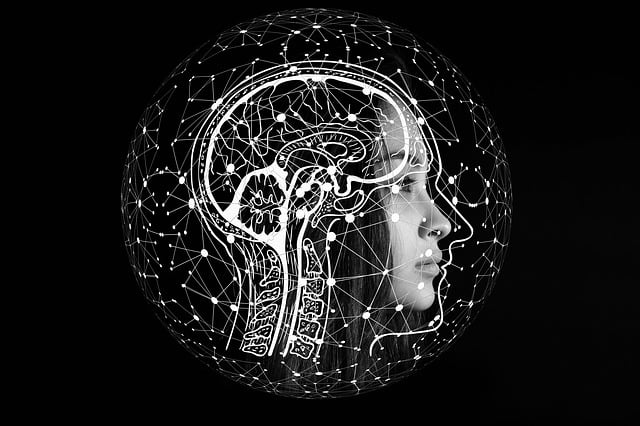-
Table of Contents
- Understanding the Role of AI in Modern Technology
- What Is AI and Why Does It Matter?
- Real-World Applications of AI
- Case Study: AI in Retail
- Challenges in Implementing AI
- Ethical Considerations in AI Development
- Future Trends in AI
- The Role of AI in Sustainability
- How to Get Started with AI
- Resources for Learning AI
- Conclusion
- Related Articles
Understanding the Role of AI in Modern Technology

Cast of AI artificial intelligence has become a cornerstone of innovation across industries. From healthcare to finance, its applications are transforming how we live and work. If you’ve been struggling to grasp its significance, this article will guide you through its key aspects, practical examples, and actionable insights. By the end, you’ll have a clearer understanding of how AI is shaping the future and how you can leverage it effectively.
What Is AI and Why Does It Matter?
Artificial intelligence refers to the simulation of human intelligence in machines. These systems are designed to perform tasks that typically require human cognition, such as learning, reasoning, and problem-solving. The cast of AI artificial intelligence is vast, encompassing technologies like machine learning, natural language processing, and computer vision.
- Machine Learning: Algorithms that improve through experience.
- Natural Language Processing: Enables machines to understand and respond to human language.
- Computer Vision: Allows machines to interpret visual data.
Understanding these components is crucial because they form the backbone of AI applications. For instance, machine learning powers recommendation systems on platforms like Netflix, while natural language processing drives virtual assistants like Siri and Alexa.
Real-World Applications of AI
The cast of AI artificial intelligence is evident in numerous real-world applications. In healthcare, AI is used for early disease detection and personalized treatment plans. For example, IBM Watson Health leverages AI to analyze medical data and assist doctors in making informed decisions.
In finance, AI algorithms detect fraudulent transactions and optimize investment strategies. Companies like JPMorgan Chase use AI to analyze market trends and predict stock movements. Additionally, AI is revolutionizing customer service through chatbots that provide instant support and reduce operational costs.
Case Study: AI in Retail
Retail giants like Amazon are leveraging AI to enhance customer experiences. Their recommendation engines analyze user behavior to suggest products, increasing sales and customer satisfaction. Furthermore, AI-powered inventory management systems ensure optimal stock levels, reducing waste and improving efficiency.
Challenges in Implementing AI
Despite its potential, implementing AI comes with challenges. One major issue is data quality. AI systems rely on vast amounts of data, and inaccurate or biased data can lead to flawed outcomes. Additionally, there are ethical concerns, such as privacy violations and job displacement.
- Data Quality: Ensuring accurate and unbiased data is critical.
- Ethical Concerns: Addressing privacy and job displacement issues is essential.
- Technical Expertise: Skilled professionals are needed to develop and maintain AI systems.
To overcome these challenges, organizations must invest in robust data governance frameworks and prioritize ethical AI practices. Moreover, fostering a culture of continuous learning can help employees adapt to AI-driven changes.
Ethical Considerations in AI Development
Ethics play a pivotal role in the cast of AI artificial intelligence. Developers must ensure that AI systems are transparent, fair, and accountable. For instance, facial recognition technology has faced criticism for racial bias, prompting calls for stricter regulations. By adhering to ethical guidelines, organizations can build trust and ensure responsible AI use.
Future Trends in AI
The future of AI is brimming with possibilities. One emerging trend is explainable AI, which aims to make AI decision-making processes more transparent. This is particularly important in high-stakes industries like healthcare and finance, where understanding AI’s reasoning is crucial.
Another trend is the integration of AI with the Internet of Things (IoT). This combination enables smart devices to communicate and make decisions autonomously. For example, smart home systems use AI to optimize energy consumption and enhance security.
The Role of AI in Sustainability
AI is also playing a significant role in promoting sustainability. For instance, AI-powered systems are being used to monitor and reduce carbon emissions. Additionally, AI is aiding in wildlife conservation by analyzing data to track endangered species and predict environmental changes.
How to Get Started with AI
If you’re new to AI, start by identifying areas where it can add value to your work or business. Next, invest in learning resources, such as online courses or workshops, to build your knowledge. Additionally, consider partnering with AI experts or consulting firms to implement AI solutions effectively.
- Identify Opportunities: Determine where AI can make the most impact.
- Invest in Learning: Enroll in courses or attend workshops to enhance your skills.
- Collaborate with Experts: Work with professionals to implement AI solutions.
By taking these steps, you can harness the power of AI to drive innovation and achieve your goals.
Resources for Learning AI
There are numerous resources available to help you learn about AI. Platforms like Coursera and edX offer courses on AI and machine learning. Additionally, books like “Artificial Intelligence: A Guide to Intelligent Systems” provide in-depth insights into AI concepts and applications.
Conclusion
The cast of AI artificial intelligence is reshaping industries and creating new opportunities. By understanding its components, applications, and challenges, you can leverage AI to drive innovation and solve complex problems. Whether you’re a beginner or an experienced professional, embracing AI can help you stay ahead in today’s rapidly evolving world. Start your AI journey today and unlock its full potential.



Leave a Reply